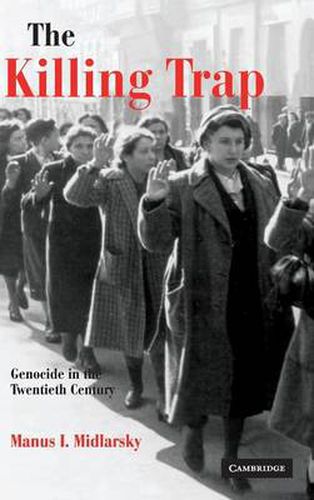Readings Newsletter
Become a Readings Member to make your shopping experience even easier.
Sign in or sign up for free!
You’re not far away from qualifying for FREE standard shipping within Australia
You’ve qualified for FREE standard shipping within Australia
The cart is loading…






The Killing Trap offers a comparative analysis of the genocides, politicides and ethnic cleansings of the twentieth century, which are estimated to have cost upwards of forty million lives. The book seeks to understand both the occurrence and magnitude of genocide, based on the conviction that such comparative analysis may contribute towards prevention of genocide in the future. Manus Midlarsky compares socio-economic circumstances and international contexts and includes in his analysis the Jews of Europe, Armenians in the Ottoman Empire, Tutsi in Rwanda, black Africans in Darfur, Cambodians, Bosnians, and the victims of conflict in Ireland. The occurrence of genocide is explained by means of a framework that gives equal emphasis to the non-occurrence of genocide, a critical element not found in other comparisons, and victims are given a prominence equal to that of perpetrators in understanding the magnitude of genocide.
$9.00 standard shipping within Australia
FREE standard shipping within Australia for orders over $100.00
Express & International shipping calculated at checkout
The Killing Trap offers a comparative analysis of the genocides, politicides and ethnic cleansings of the twentieth century, which are estimated to have cost upwards of forty million lives. The book seeks to understand both the occurrence and magnitude of genocide, based on the conviction that such comparative analysis may contribute towards prevention of genocide in the future. Manus Midlarsky compares socio-economic circumstances and international contexts and includes in his analysis the Jews of Europe, Armenians in the Ottoman Empire, Tutsi in Rwanda, black Africans in Darfur, Cambodians, Bosnians, and the victims of conflict in Ireland. The occurrence of genocide is explained by means of a framework that gives equal emphasis to the non-occurrence of genocide, a critical element not found in other comparisons, and victims are given a prominence equal to that of perpetrators in understanding the magnitude of genocide.